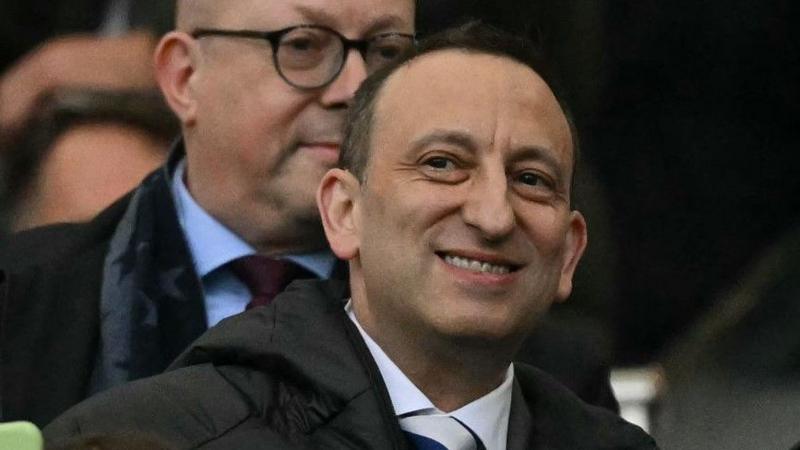AI Revolution: Bloom Spearheads Technological Transformation at Hearts Football Club




In the dynamic world of football, AI technology is becoming a game-changer, and it's catching the attention of club owners and managers looking to gain an edge over competitors. One notable figure at the forefront of this revolution is Tony Bloom, the owner of Brighton & Hove Albion, who has recently expanded his football portfolio by taking over Scottish club Hearts. His game plan? To leverage AI to revolutionize the team's strategies both on and off the pitch.
Bloom's interest in AI is not a new venture. At Brighton, he has already implemented data analytics and AI technology to optimize player performance and scouting processes. The success there has been evident, with the club holding its own in the fiercely competitive English Premier League. Now, Bloom hopes to replicate this success north of the border with an ambitious plan for Hearts.
But what exactly does AI bring to the table for football clubs? For starters, AI can analyze vast amounts of data much quicker than a human can. It can pick up patterns and predict outcomes based on historical data which can be crucial for making strategic decisions. For instance, AI algorithms can suggest the best line-ups against specific opponents or advise on player fitness levels to reduce the risk of injuries. Moreover, scouting becomes more efficient as AI helps identify talents from various leagues across the globe by analyzing performance metrics without bias.
For a club like Hearts, which has been aspiring to climb back to the top of Scottish football, these capabilities can be game-changing. Bloom's strategy seems focused on building a robust infrastructure that can nurture talent and implement cutting-edge practices seen in top European clubs. This includes enhancing training facilities and possibly incorporating virtual reality technologies to improve player decision-making skills and tactical awareness.
The Edinburgh-based team stands to benefit greatly from Bloom's experience and innovation-driven approach. By embracing AI, Hearts can expect not only to enhance their performance in matches but also to optimize their recruitment strategy and player development. This strategic shift could very well set a new benchmark for other Scottish clubs.
Furthermore, this move by Bloom is indicative of a broader trend where football teams are increasingly turning to technology to consolidate their competitive advantage. AI's influence is slowly reshaping the landscape of the sport, bringing a more analytical approach to an area once solely dominated by human judgment. As technology continues to evolve, it's likely that more clubs will follow the path Tony Bloom is currently chartering.
This development could herald a new era for Hearts and perhaps even usher in a period of renewed success and innovation-driven growth. For the fans, it brings a wave of excitement and curiosity, watching their beloved team adapt and evolve in the fast-paced modern era of football.
While the full impact of Bloom's plans will unfold over time, the integration of AI in football management at Hearts symbolizes a forward-thinking mindset that could well dictate the future trajectory of football clubs globally. Through strategic investment in AI, Bloom is not just aiming to transform Hearts but also making a strong statement about the role of technology in sports. It will be fascinating to see how this blend of tradition with tech-driven innovations will play out in the rugged landscape of Scottish football. As the sport continues to evolve, embracing technology might just be the key to staying relevant and successful in an increasingly competitive field.